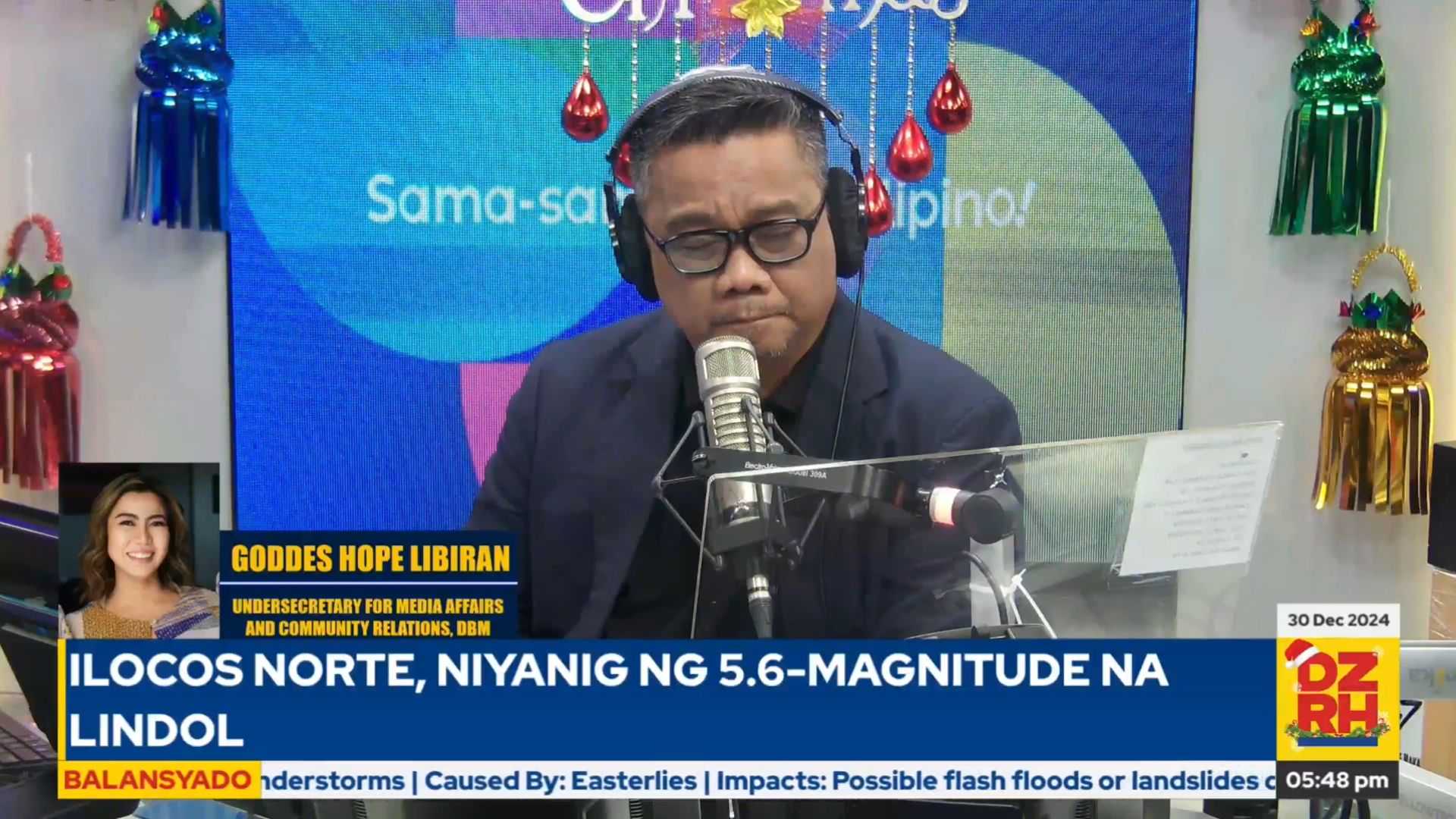

Department of Budget and Management (DBM) Undersecretary Goddes Hope Libiran discussed their agency’s role in the national budget’s process, including the President’s power to veto items within the ratified version of the General Appropriations Bill (GAB).
In a Balansyado exclusive on Monday, December 30, the Undersecretary clarified that the DBM is in charge of collecting budget proposals from all national government agencies. Upon gathering the proposals, they will review and examine whether the plans submitted are aligned with the Philippine Development Plan, the term fiscal framework, and the Budget Coordination Committee’s ceiling.
“Once ‘yan ay mareview at maicompile, tinatawag po yang National Expenditure Program. ‘Yan po yung tinatawag na President’s budget. Inaaprubahan po ‘yan ng Pangulo bago isumite sa Congress,” Libiran clarified.
“Yung Congress naman, they have the power of the purse na tinatawag. Sila yung nagbubusisi, nagdedeliberate. May power sila vested by the Constitution to realign, dagdagan, bawasan yung mga funds allocated for a specific program or project. Depende doon sa kanilang review,” she added.
Revisions will be made depending on the Congress’ observation. If they see that an agency has low utilization, they can decrease its budget. Subsequently, if they observe that an agency needs more funds for a certain program, they can also increase it.
“Sila yung pwedeng mag realign, magdagdag, magbawas, magtapyas, basta hindi siya lalagpas doon sa approved ceiling. Parehas po yung House of Representatives and even the Senate, the same ang kanilang power,” she said.
“Ngayon, nagkakaroon sila para magkasundo yung parehas nila versions ng General Appropriations Bill, nagtatawag sila ng bicameral conference committee. Doon nila tinatayo, inaayos, kung ano yung mga differences sa versions nila—ng ating proposed budget,” she added.
Different Versions of the National Budget
For those who are confused, Usec. Libiran addressed questions surrounding the different proposed versions of the national budget. According to the Undersecretary, President Ferdinand Marcos Jr. only has the power to veto programs within the agency. Once Congress ratifies the proposed budget, he cannot realign or increase funds for agencies.
Marcos can only veto programs, either line items, project per project, or sometimes, veto the entire bill. However, Libiran clarified that if an entire bill is vetoed, this would force an agency to have a reenacted budget.
Due to the lengthy process, Libiran highlighted how Marcos was focused on this agenda, opting to work even on Christmas day.
“Nung nakita ni Presidente ang naging final version ng General Appropriations Bill, talagang hindi ‘yan sila nag pasko—witness po ako dyan. Halos hindi na natulog—even BBM kasi nireview po kung ano yung mga items,” she said.
“Talagang the President exercised his veto powers. Ngayon lang po ako naka-witness din ng Presidente na ganon karami ang mga vineto na items,” she added.
Finding Common Ground
Before the national budget is proposed or finalized, the Development Budget Coordination Committee, comprised of the Department of Finance (DOF), the National Economic and Development Authority (NEDA), the DBM, and the Bangko Sentral ng Pilipinas, are the ones in charge of informing other agencies about the allotted budget for each year. The amount will be based on the projected revenue.
Upon giving a notice to agencies, the DBM will collect the documents, and verify if agencies agree to the DBM’s revisions. This will then be submitted to the President to finalize the Executive’s budget.
However, the process does not end here. To find common ground, Congress and the Senate will discuss the proposals through a series of conferences.
“Siyempre, hindi natin maiiwasan na kapag dumating na siya sa Congress, yung mga agencies, na siguro pakiramdam nila [na] kailangang-kailangan talaga madagdagan yung budget nila. Lumalapit sila sa ibang mga Congressmen, sa mga Senador, para madagdagan yung kanilang budget,” Libiran said.
The two chambers, Congress and the Senate, will conduct budget hearings for the agencies and construct their version of the national budget. If both chambers see gaps or evident differences within their proposed versions, a bicameral conference will be held to finalize the GAB, per the President’s approval.
Veto Power
“Hindi na pwedeng mag restore ng budget ang Presidente. Hindi na siya pwedeng magdagdag o magbawas. Ang power lang vested to the Constitution by the President when it comes to the proposed budget, is yung kanyang veto power,” Libiran clarified.
According to the DBM Undersecretary, a President’s veto power pertains to disapproving certain bills in the budget proposal. If this happens, agencies will have to work under a reenacted budget.
Agencies working under the reenacted budget will have to work with the funding given to them in the previous year.
“Kaya nga po kanina sinabi ni Presidente, na ‘yun yung option na hindi natin pwede ma-afford. Kasi nga po, it will cause yung mga delays and limitations ng major projects ng government,” she said.
Meanwhile, Libiran also discussed the unprogrammed appropriations, citing the government’s important projects and programs. Funds can only be released for these if excess revenues are collected and have been certified by the Bureau of Treasury.
“Kapag may mga excess revenue na higit doon sa inexpect natin or tinatarget na matanggap next year, doon pa lang tayo nakakapag release ng pondo under the unprogrammed appropriations,” she said.
“The number one trigger, is, of course, there should be an excess revenue as certified by the Bureau of Treasury,” she added.




